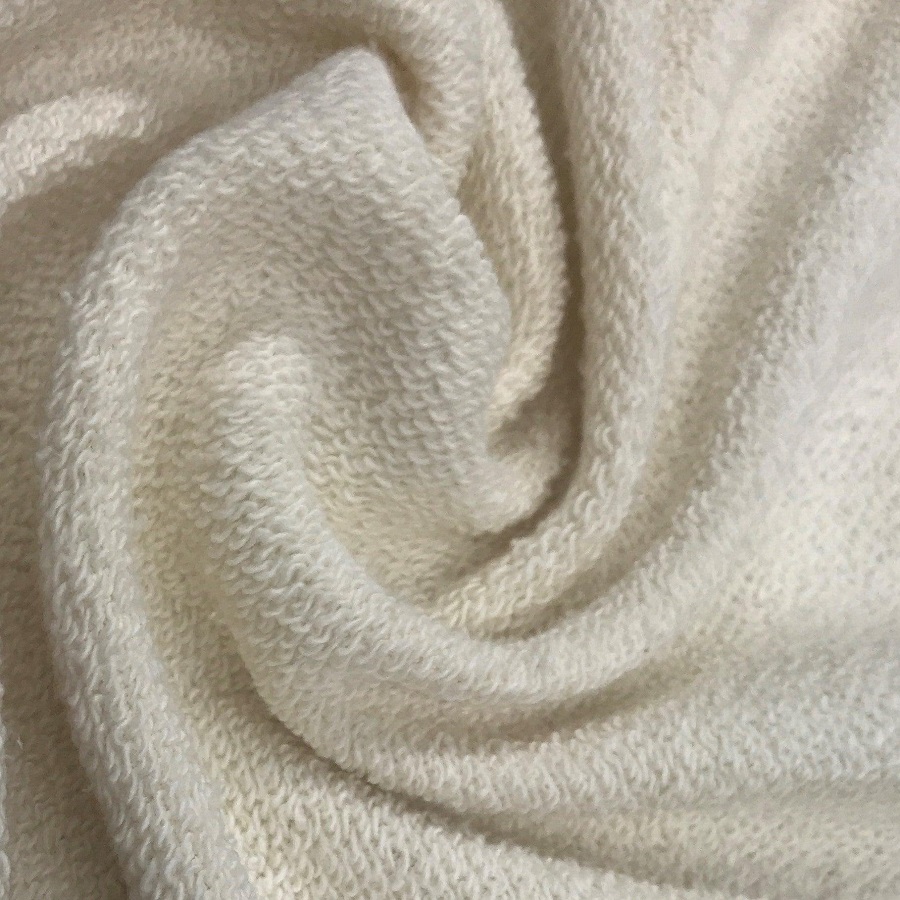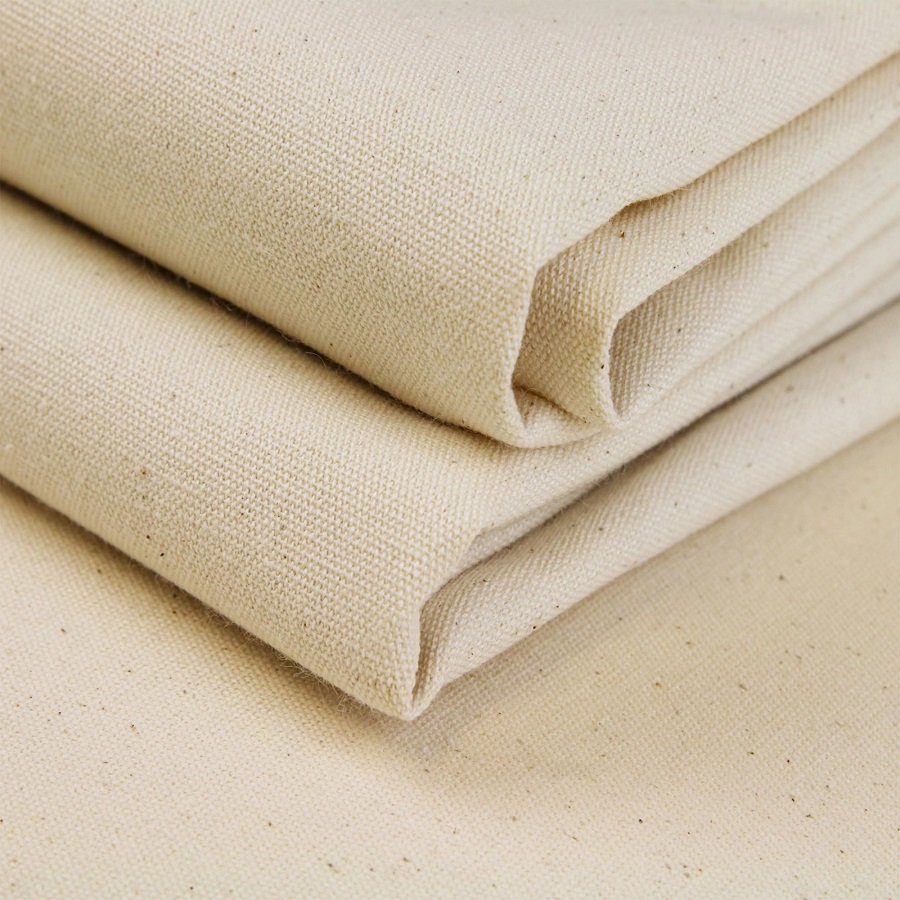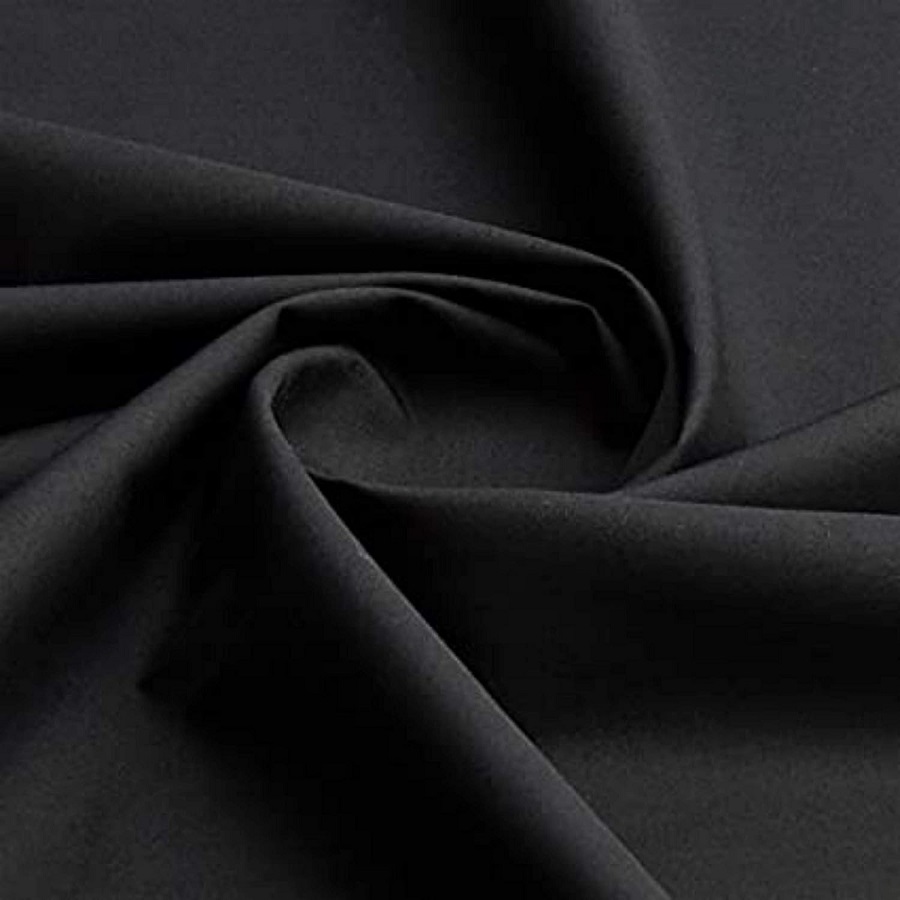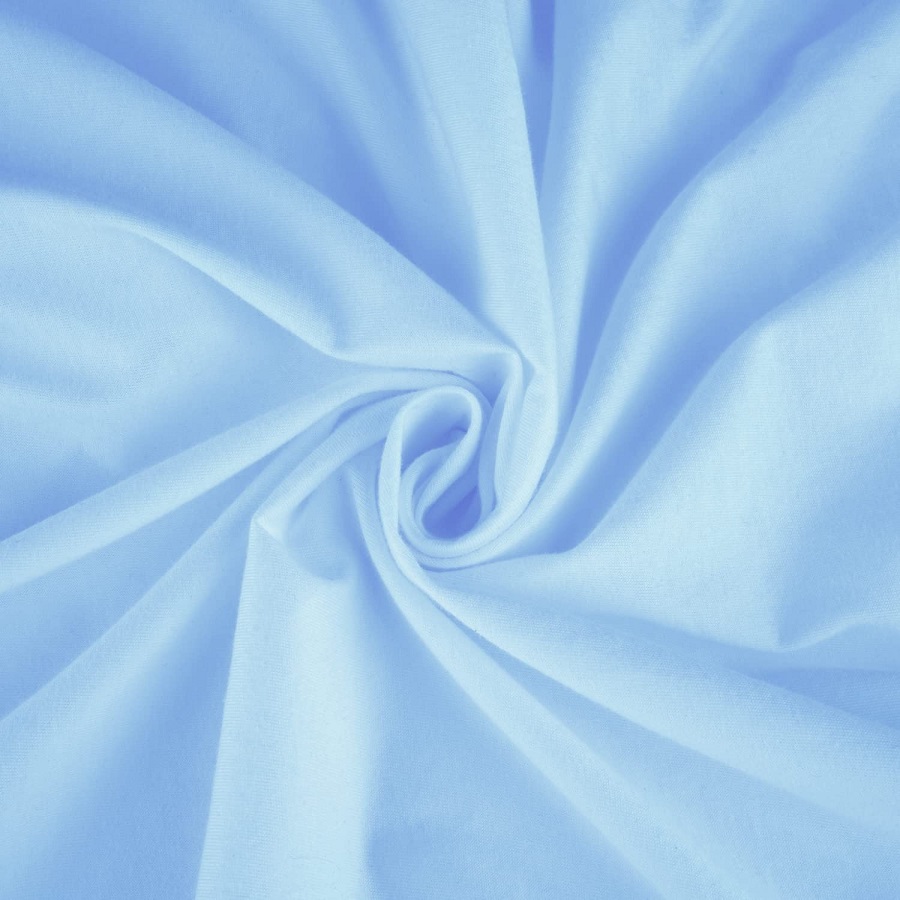The Benefits of 100% Cotton Fabric
Choosing 100% cotton fabric for clothing offers a myriad of advantages. One key benefit is its natural origin. Cotton is a renewable resource, plucked from cotton plants. This makes it a favorable choice for those who prioritize eco-friendliness in their wardrobe selections.
Another significant benefit is the comfort it provides. Cotton is famously soft to the touch, contributing to less irritation and a pleasant feel against the skin. This softness enhances the overall comfort when wearing cotton clothing throughout the day.
Durability is also a strong point for cotton fabric. With proper care, cotton garments can withstand years of wear and washing. They resist pilling and maintain their shape, ensuring longevity for your clothing investments.
The fabric’s breathability cannot go unmentioned. 100% cotton clothing allows for air circulation, reducing sweat retention and helping keep the body cool and dry. This natural breathability is especially appreciated in warmer climates or during physical activity.
Lastly, cotton is hypoallergenic. It rarely causes allergic reactions, making 100% cotton fabric for clothing a safe choice for people with sensitive skin or allergies. Its gentle nature helps avoid discomfort or health issues related to skin sensitivities.
By opting for 100% cotton fabrics, consumers enjoy a blend of comfort, sustainability, and practicality in their daily attire.

Environmental Impact of Cotton Fabric Production
While 100% cotton fabric for clothing has many benefits, it’s vital to consider its environmental impact. Cotton production requires significant water usage. It takes about 2,700 liters of water to produce the cotton needed for one t-shirt. This water use can strain resources in water-scarce regions.
Proper cultivation practices aim to reduce the impact. Crop rotation and sustainable farming reduce soil degradation and water waste. Farmers are turning to methods that lessen the environmental footprint of cotton production.
Chemical use in cotton farming is another concern. Pesticides and fertilizers can harm ecosystems. Organic cotton options offer an alternative with lower chemical use. Farmers who grow organic cotton use natural methods to control pests and nourish the soil.
Waste is a consideration in the lifecycle of cotton garments. Responsible manufacturing means aiming for minimal waste during production. Recycling and upcycling cotton products after their lifecycle can also mitigate environmental effects.
By choosing 100% cotton fabric for clothing, consumers can encourage the industry to adopt more sustainable practices. When buyers demand ethically sourced cotton, they support healthier ecosystems and sustainable agriculture.
How to Identify Genuine 100% Cotton Clothing
When shopping for clothes, you might seek the comfort and qualities of 100% cotton fabric for clothing. However, determining if a garment is genuinely made of 100% cotton is crucial. Here’s how to confirm the authenticity of cotton clothing:
First, check the label carefully. Manufacturers are required to list the fabric contents on clothing labels. Look for labels that list 100% cotton to ensure you’re getting the real deal.
Next, do the touch test. Genuine cotton feels soft and flexible. It should not feel stiff or synthetic. If the fabric is rough or scratchy, it may not be pure cotton.
Another method is the wrinkle test. Pure cotton tends to wrinkle more than synthetic blends. Squeeze the fabric in your hand. If it wrinkles easily, that’s a good sign it’s genuine cotton. Ironing is often necessary for 100% cotton clothes due to this trait.
You can also do a burn test, with caution. Take a small thread from the garment and set it alight. Cotton will burn with an afterglow and smell like burning paper. Synthetic fabrics often melt or burn with black smoke.
Lastly, consider the price. Genuine 100% cotton fabric for clothing usually comes at a premium. If the price is too good to be true, it might not be pure cotton.
By knowing how to identify genuine 100% cotton clothing, you can enjoy the full benefits of comfort, breathability, and sustainability that this natural fabric offers.

The Comfort and Breathability of Cotton Apparel
One of the standout traits of 100% cotton fabric for clothing is its unmatched comfort. The natural fibers are gentle on the skin, making them ideal for extended wear. Cotton’s softness means it doesn’t chafe or irritate, even on the most sensitive skin.
Cotton’s breathability is another reason why it’s a wardrobe staple. This natural fiber lets air flow through, keeping you cool on hot days and during intense activities. Unlike synthetics, cotton doesn’t trap heat or moisture against your body. This prevents that clammy, uncomfortable feeling you might get from less breathable materials.
When you wear cotton apparel, you’ll notice how it regulates temperature effectively. It can keep you warm when it’s cool and cool when it’s warm. This adaptability is great for layers and for ensuring year-round comfort.
But breathability isn’t just about temperature control. It also means lower risk of odor retention. Cotton releases sweaty smells more easily once washed, compared to synthetic fabrics that may hold onto odors even after cleaning.
Moreover, the moisture-wicking properties of cotton keep your skin dry. It absorbs sweat and disperses it on the surface for quick evaporation. This helps reduce the discomfort and potential skin issues that come with damp fabric.
Choosing 100% cotton fabric for clothing means choosing comfort that lasts all day. Whether you’re at work, out for a casual event, or doing a workout, cotton apparel supports your body to breathe and feel good. Keep these benefits in mind next time you’re searching for reliable and comfy attire.
Caring for Your Cotton Clothing: Tips and Tricks
Caring for 100% cotton fabric for clothing is straightforward but important. Following certain tips and tricks can keep your cotton apparel looking new and lasting longer. Here’s how to properly care for your cotton clothes:
Read Labels: Always check the care label before laundering. It will guide you on washing and drying temperatures, as well as ironing instructions.
Use Gentle Detergents: Opt for mild detergents to protect the natural fibers. Harsh chemicals can break down cotton over time.
Wash with Similar Colors: To prevent dye transfer, wash your cotton items with similar shades. This keeps colors bright and fabric looking crisp.
Avoid High Heat: High temperatures in washing and drying can shrink cotton. Choose cooler water and lower heat settings when possible.
Pre-Treat Stains: Apply a stain remover before washing to tackle tough spots. Natural solutions like baking soda or vinegar can work too.
Air Dry When Possible: Hanging clothes to air dry helps preserve them. If you must use a dryer, select a low heat setting.
Iron Carefully: Some cotton clothing may require ironing. Do it while the fabric is slightly damp to ease out wrinkles more effectively.
Fold or Hang Promptly: Prevent wrinkles by folding or hanging cotton garments quickly after drying.
Store Properly: Keep cotton clothes in a cool, dry place. Avoid plastic bags as these can trap moisture and cause mildew.
By using these tips, your cotton clothing will maintain its comfort and durability for years. Remember, taking care of 100% cotton fabric for clothing is a step towards sustaining both your wardrobe and the environment.
Cotton Fabric and Skin Sensitivities: A Natural Solution
100% cotton fabric for clothing is a go-to for those with skin sensitivities. The natural fibers are gentle and reduce the chance of irritation. Cotton is hypoallergenic, making it safe for sensitive skin. It allows the skin to breathe, thus lessening instances of rashes or allergic reactions.
People with eczema or psoriasis often find relief in wearing cotton. Its softness does not aggravate their condition. Dermatologists sometimes suggest cotton apparel for its skin-friendly properties.
Moreover, cotton does not cling to the skin. This means less friction and reduced potential for irritation. And, as it is free from synthetic blends, it generally contains fewer chemicals that could cause reactions.
Parents also prefer 100% cotton fabric for children’s clothing. Kids’ skin is delicate and more prone to allergies. Cotton offers comfort and less risk of skin troubles for the little ones.
To sum up, when you choose 100% cotton fabric for clothing, you’re opting for a natural solution for skin sensitivities. It is gentle, hypoallergenic, and breathable, making it an ideal choice for anyone looking to reduce skin discomfort linked to their attire.

The Versatility of Cotton: From Casual to Formal Wear
100% cotton fabric for clothing stands out for its versatility. It easily transitions from relaxed, everyday wear to more polished, formal outfits. Whether you need a casual t-shirt or a classy dress shirt, cotton is a trusted fabric choice.
For casual looks, cotton offers a range of options. Jeans, tank tops, and sundresses are comfortable and stylish in cotton. It’s perfect for a laid-back day out or a cozy evening at home. Its breathability makes it ideal for activewear too.
When it comes to formal wear, cotton also shines. Think crisp button-up shirts and elegant cotton blouses. These garments benefit from cotton’s neat appearance and ability to hold its shape. For formal events, a cotton suit or dress can provide comfort without compromising style.
Cotton is loved for its ability to blend in with various styles and functions. You can dress it up or down to suit the occasion. Its natural fibers work well with dyes, allowing for vibrant colors in all types of attire. The texture of cotton also varies, from smooth poplin to cozy flannel, offering a range of tactile experiences.
The adaptability of cotton makes it a staple in every wardrobe. It suits all ages and works for any event. Next time you’re updating your closet, consider the flexibility of 100% cotton fabric for clothing. It’s a choice that offers comfort, style, and versatility.
Supporting Sustainable Fashion with Cotton Choices
Choosing 100% cotton fabric for clothing is more than a comfort decision—it’s a sustainable one. By opting for cotton, you’re supporting a cycle that has the potential to be much kinder to our planet. Here are some ways you can support sustainable fashion with your cotton choices:
Go Organic: Organic cotton is grown without harmful chemicals, reducing pollution and conserving water. By picking organic cotton, you help support eco-friendly farming practices.
Seek Certifications: Look for certifications like the Global Organic Textile Standard (GOTS). These labels ensure the cotton meets strict environmental and social criteria throughout production.
Buy Secondhand: Secondhand cotton clothing extends the life of garments and reduces waste. It’s a sustainable choice that lessens the demand for new resources.
Support Ethical Brands: Choose brands committed to ethical practices. These brands often use sustainable cotton and ensure fair working conditions for those making the clothes.
Recycle and Upcycle: Instead of throwing away old cotton clothes, find ways to give them a new life. You can recycle them or repurpose them into something new, like a quilt or cleaning rags.
Care with Love: Taking good care of your cotton clothes can make them last longer. This means less frequent purchases and less strain on resources.
Remember, every time you buy a piece of clothing, you’re casting a vote for the type of world you want to live in. Choose 100% cotton fabric for clothing wisely and join the movement for a more sustainable fashion future.
